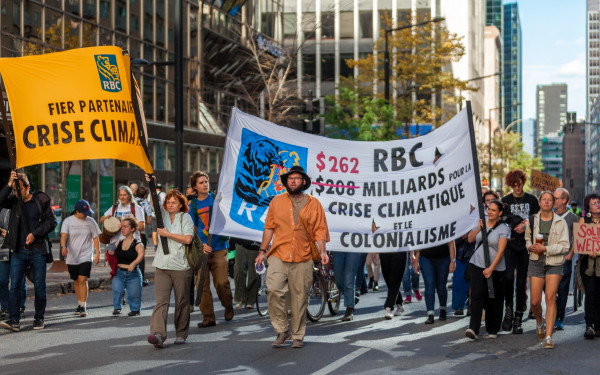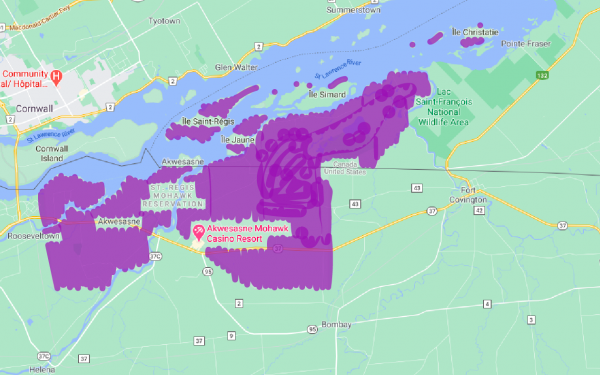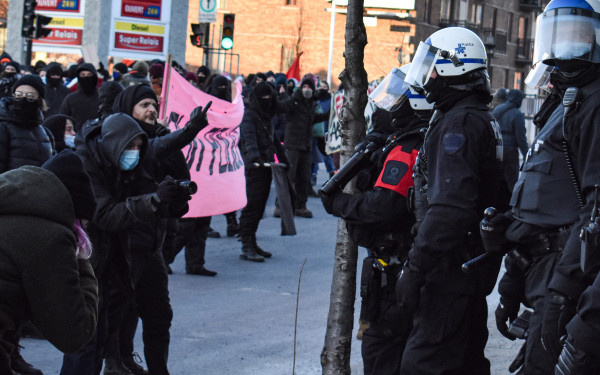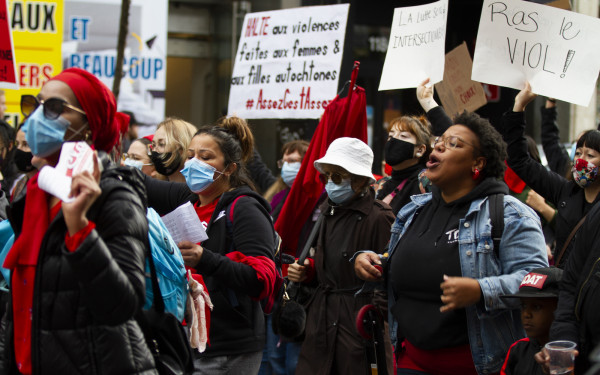Anti-Pipeline Montreal Activists Support Wet’suwet’en
Montrealers Gathered in Front of RCMP Building Opposing Pipeline in B.C. First Nations Land
About 100 Indigenous people and activist groups gathered in front of the Royal Canadian Mounted Police station of Montreal last Sunday to show support to the anti-pipeline presence in Wet’suwet’en territory.
“You are hereby notified to vacate unceded Wet’suwet’en territory immediately,” stated an eviction notice placed on the front door of the RCMP station in Montreal.
The demonstration aimed to show solidarity with the Wet’suwet’en people fighting to keep pipelines and RCMP presence out of their territory.
Tensions had been on the rise, they were exacerbated across the country as the RCMP raided a Wet’suwet’en land defender camp on Jan. 7, 2019. It resulted in the arrest of 14 people. The police had received orders to use lethal force on the activists if necessary.
“We’re fighting a $67 billion corporation,” said Marlene Hale, a speaker from Wet’suwet’en. “Do you know how big that is compared to a small nation called the Wet’suwet’en Nation? It is humongous.”
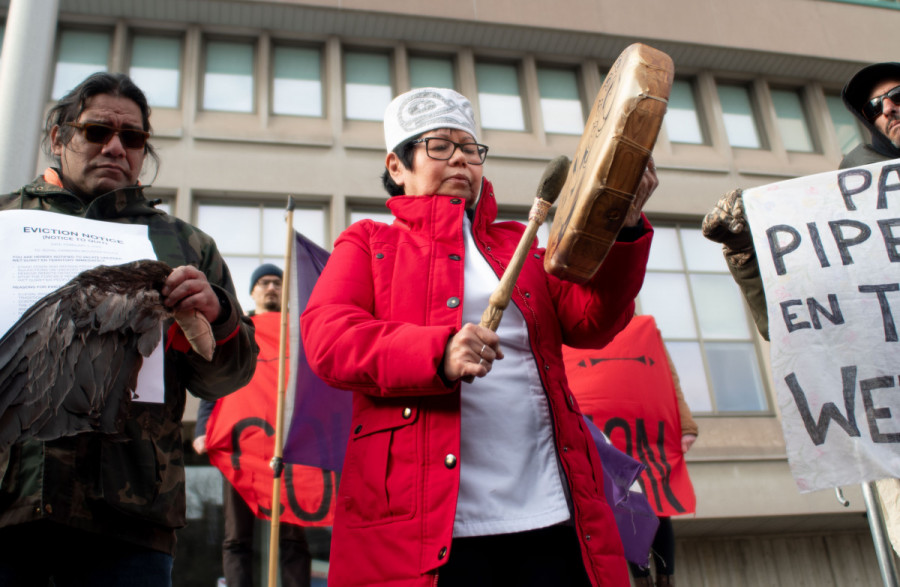
Al Harrington, an Ojibway man residing in Kanesatake and organizer of the event, gathered people from different backgrounds and different groups. These included activists residing in Kanesatake, Extinction Rebellion and La planète s’invite à l’Université.
“Canadians are waking up,” said Harrington, stating the pipeline construction is not a British-Columbia issue, but a national one. “We need to stand up as one.”
Harrington explained that the construction on unceded land against the Wet’suwet’en people’s wishes concerns the whole nation as similar situations could occur in the future. “We have our rights as a nation,” he said. “We have the right to kick people out of our lands.”
Alex Tyrrell, leader of the Green Party of Quebec was among the crowd of supporters.
“Canada is still a colonial state. We still have problems with institutional and systemic racism. Especially towards Indigenous communities,” said Tyrrell. “We see that happening with the pipeline that’s been built in the West. Their rights are being trampled on.”
The company claims to be working closely with the communities to ensure a good relationship with the locals.
“Canada is still a colonial state. We still have problems with institutional and systemic racism. Especially towards Indigenous communities. We see that happening with the pipeline that’s been built in the West. Their rights are being trampled on.” —Alex Tyrrell
“TC Energy and Coastal GasLink have been exceptional in the way they deal with First Nations people,” said Layne Boucher, local Indigenous contractor as stated on the Coastal Gaslink website. “They really listen and I think they care, and they’re willing to incorporate the needs and concerns of local Indigenous people into their project planning and strategy.”
The project was accepted by the B.C. Supreme court as well as elected Indigenous councils from the Wet’suwet’en Nation. However, hereditary Chiefs, non-elected leaders, were not consulted and most of them are against the project. This sparked discontent within the anti-pipeline supporters.
“[This is is a] clear example of institutional racism that we have in Canada,” said Tyrrell. “We can’t only say that because the court allowed us that we are going to do it.”
According to different speakers at the rally, such a project should seek the approval of the hereditary Chiefs as they represent Indigenous people and their traditional laws. According to those laws, the land or “Mother Earth” must be respected.

“You cannot sell this land,” said speaker at the event, Jocelyn Wabano-Iahta. “It doesn’t make any sense. It’s like tearing up our mother. You’re not supposed to. It’s part of our sacred laws to look after her.”
“What affects a part, it affects the whole,” said Wabano-Iahta. She explained that the construction of the pipeline could be dangerous to nature and the way of living for Indigenous people. “Everything is interconnected.”
Hale backed the necessity to seek the permission of hereditary Chiefs when it came down to important decisions. She also pressed anti-pipeline supporters to not use violence. “We don’t want anybody hurt,” she said.
“We don’t get angry with the RCMP. I know we want to,” said Hale, “But Indigenous people; Wet’suwet’en people are peaceful. We are loving people. All we want is our land back. All we want to do when spring comes, is we want to start fishing. We want to start planting, start picking up berries. We don’t want RCMP blocking our way.”
Other anti-pipeline demonstrations will take place during the week as different Montreal communities continue to show support for the Wet’suwet’en people.
“We don’t know what to say. There’s got to be something. There’s got to be a light at the end of the tunnel for us. That’s what we are hoping for,” said Hale.
“In a peaceful manner, give us our 22,000 acres of land and go away.”

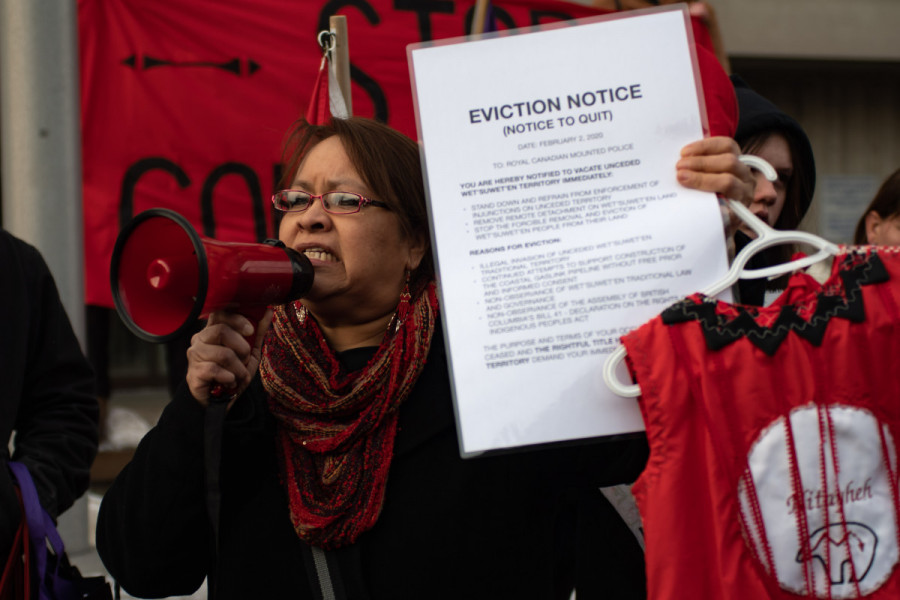
_600_832_s.png)

